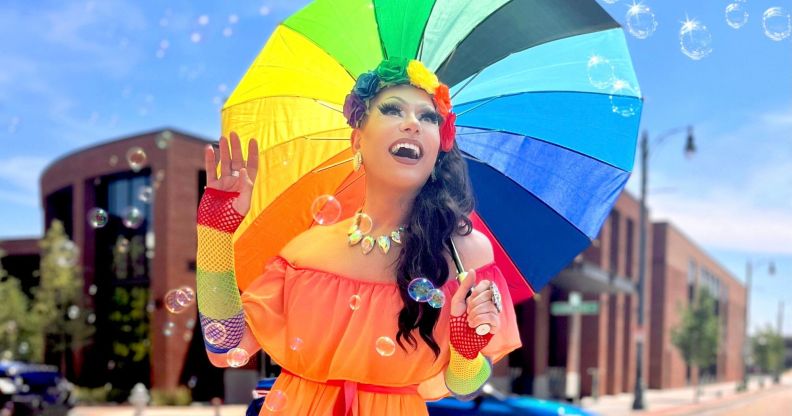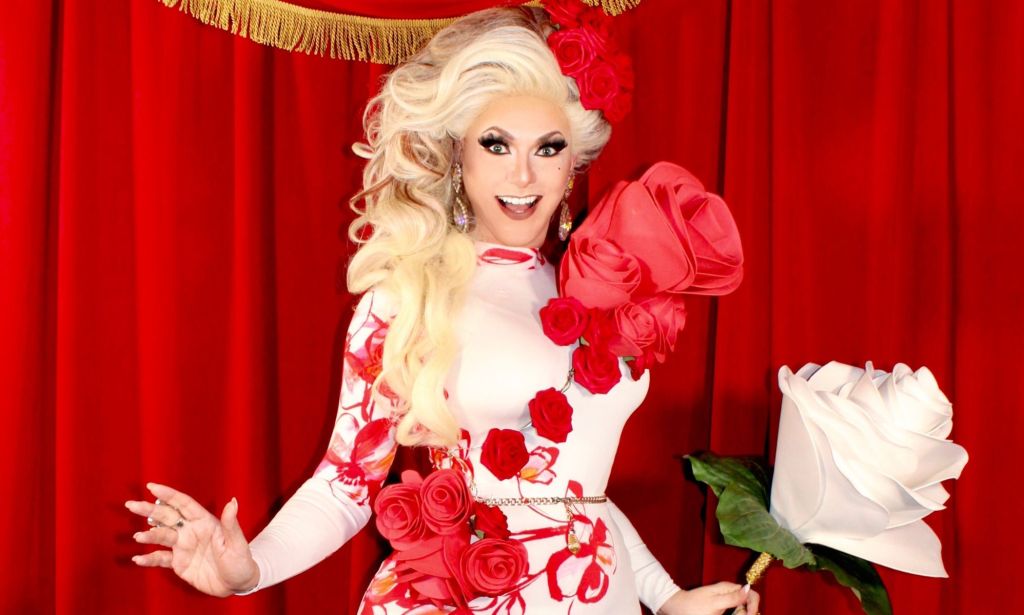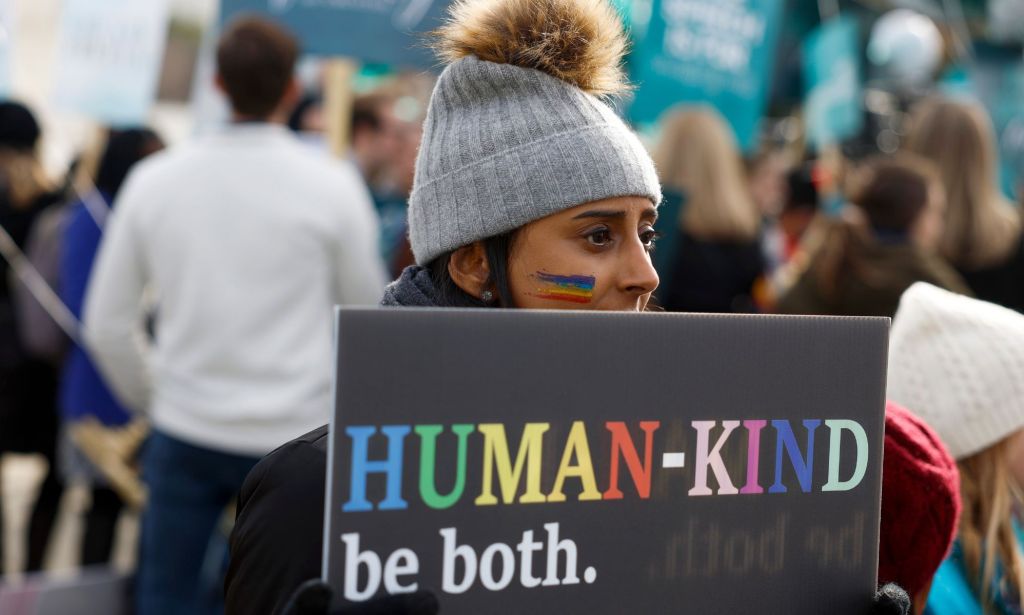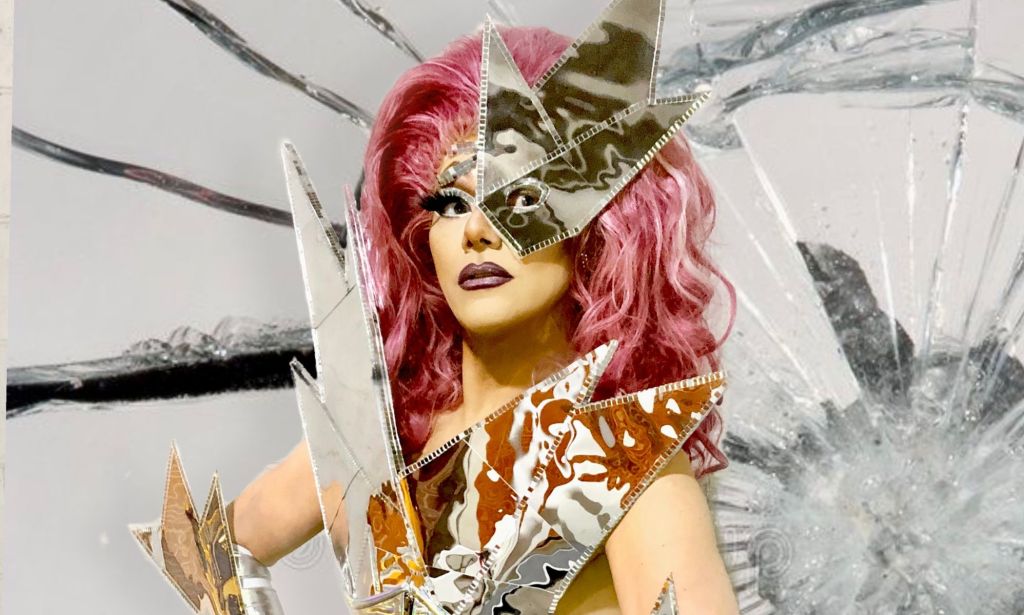Tennessee drag ban ‘like being dragged 54 years back in time’: ‘Revolution must be upheld’

Tennessee drag queen Bella DuBalle says it’s important for the entire LGBTQ+ community to fight together because “y’all means all”. (Luke Conner/Bella DuBalle)
Tennessee drag queens are “fearful” and “angry” after the state passed a ban on their art form – but they won’t stop fighting.
Tennessee became the first state in the US to pass a ban on public drag performances that could potentially be seen by minors on 2 March. It comes as a number of red states push similar efforts to criminalise drag performers, coinciding with bigoted, baseless rhetoric slandering LGBTQ+ people as unsafe to children.
Memphis-based drag queen Bella DuBalle says the message being sent to the LGBTQ+ community is clear: “We don’t want you here.”
“This is a movement coming from the religious right, and [it’s] feeling like somehow we’ve been dragged 54 years back in time to Stonewall again,” she says. “The pendulum swing is so crazy.”
The bill categorises drag as “adult cabaret” or a “prurient interest” – a word literally defined in state law as a “shameful or morbid interest in sex”. Bella says this is a clear attempt by lawmakers to mask anti-LGBTQ+ discrimination – one she fears could inspire further violence against the community.
“To hear these baseless accusations coming up again, it reminds us of the 60s and 70s when everyone was yelling: ‘They’re paedophiles. They’re sickos. They’re freaks. They need mental help.’
“We moved away from that, and then you put someone like Trump back in power who says all the ignorant, hateful things that he thinks and it whips people into a frenzy.
“Then suddenly, we’re living in this fallout of stochastic terrorism [where hate speech against groups inspires individuals to mount terror attacks] where it’s totally OK to say baseless lies and hateful rhetoric about a group of people.”

Bella notes that the LGBTQ+ community are already at risk of harm, pointing to Trevor Project which found that 45 per cent of queer youth had contemplated suicide in the past year, and that one in five gender non-conforming or trans teens attempted it.
“We know we’re not at higher risk because of our orientation or gender identity. It’s because of how society treats us,” Bella says.
“It’s because we have to wake up everyday and gird our loins for battle to defend our right to exist. That’s exhausting, and we know these kids are at less risk if anyone if their life affirms the children.”
SB 3 targets any performance that features “male or female impersonators who prove entertainment that appeals to a prurient interest” from performing on public property or anywhere a minor could be present. The first offence is a misdemeanour, and the second is a felony carrying a potential years-long prison sentence.
The definition of drag in the bill is intentionally and frighteningly broad, and LGBTQ+ advocates have pointed out it could be used against trans people performing in any shows.
Bella says “it’s not a coincidence” that the governor signed a ban on the provision of gender-affirming care for young trans people into law on the same day as the Tennessee drag ban. She’s calling on cisgender queer people to fight against what she views as an attack on the entire community.
“The fact that so many of the community have laid their armour down and stopped fighting for the most vulnerable among us makes me angry,” Bella says.

“The fact [is] that as soon as cis, white, gays got their right to marry, the battle was over for them – but the battle has never been over.
“Revolution must be upheld. We’ve been in that struggle since that first brick or rock was thrown.
“Here in the South, y’all means all,” she adds. “If it weren’t for Marsha P Johnson, Sylvia Rivera, Stormé DeLarverie – if it weren’t for the trans people of colour and the drag entertainers, we would have no rights at all.”
In the wake of the drag ban passing into law, Bella says the “cavalry showed up”, with everyone from White House press secretary Karine Jean-Pierre to RuPaul speaking out.
Bills targeting drag have been introduced in at least 13 other states. On Friday (10 March), Kentucky’s Senate approved a bill with similar language to Tennessee’s, targeting “sexually explicit performances” involving acts of “homosexuality”. It now goes to the state House.
With Republicans keeping a keen eye on the 2024 election, it seems likely that attacks on drag aren’t going anywhere.

Bella wants the community to remember: “We’re only strong when we stand together.”
“It’s not a coincidence that all of these things are coming after the entire LGBTQ+ community en masse,” she says.
“It’s a concerted attack against all of us, and it’s going to take all of us together fighting back to overcome it.”
She adds: “Drag has been around since kabuki, Greek theatre and Shakespeare. In America, drag has been a huge part of this culture.
“The litany of shows, movies and very famous celebrity actors that have appeared in drag is huge. It’s always been okay.
“The only difference I can find between what they do and what I do is that they identify as straight and I identify as queer.”

